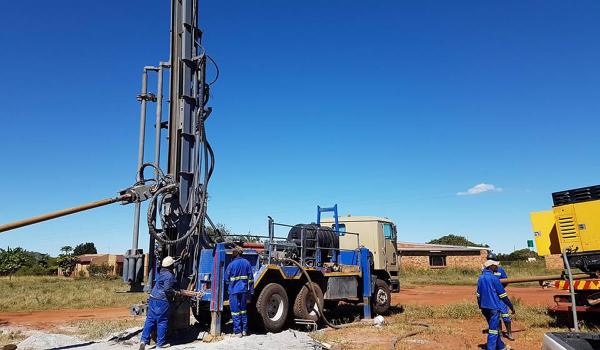UNECE opens call for input on specifications for Groundwater Resources
14 Nov 2023 by The Water Diplomat

On the 1st of November, the United Nations Economic Commission for Europe (UNECE)’s Expert Group on Resource Management announced a call for public comment on a draft document aimed at supporting decision making and reporting on groundwater projects. According to UNECE, effective reporting of groundwater resources is crucial for policy formulation, resource management, and decision-making that aligns with the 2030 Agenda for Sustainable Development.
According to Peter van der Keur, one of the senior scientists initiating the draft document, the original impetus for developing the supplemental specifications for groundwater resources is to apply the UN Framework Classification for Resources (UNFC) to groundwater resources. This would extent the area of application of a framework which has until now been used for areas such as renewable energy, nuclear energy, 'anthropogenic resources', and injection for geological storage of CO2. The Water Diplomat has become aware of concerns from other stakehiolders that this framework is essentially one that is dedicated to extractive industries, which would not be appropriate for application in the realm of groundwater.
Nevertheless, the developers of the draft are more confident that this framework is needed. Indeed, it is argued that the tool addresses the environmental and socio-economic aspects of groundwater abstraction projects, including aspects on competing multiple uses of subsurface resources. In this way, it is argued, the NFC tool and in this way contributes to informed policy making on sustainable resource management, aligned with the 2030 Agenda for Sustainable Development and considering effects of climate and land-use change. The anticipated target users for the supplemental specifications are professional groundwater resource managers in field of managing groundwater quantity and quality.
At the same time, the UNECE draft document states, groundwater is ‘inadequately referenced’ in the SDG framework: it is not specifically mentioned within Sustainable Development Goal 6 on water and sanitation, with the exception of SDG target 6.6. “By 2020, protect and restore water-related ecosystems, including mountains, forests, wetlands, rivers, aquifers and lakes”, where it is mentioned only in passing. This stands in contrast to the fact that there are 53 of the 169 indicators in the SDG framework which have a relationship with groundwater. Therefore, it is suggested, in project decision making, careful consideration must be given to possible Impacts on groundwater from different perspectives to avoid unintended, adverse outcomes when the target activities are planned.
These perspectives are organized into different project evaluation categories which help to classify a project according to its anticipated score on these categories. The first such category is the environmental, social and economic viability of a project: this category attempts to classify a project according to whether the development and operation of the project can reasonably be expected to deliver positive environmental, social and economic results. It assesses whether all necessary conditions have been or will be met (including relevant permitting and contracts) within a reasonable timeframe, and there are no obstacles to the delivery of the project based on current projections.
The next category is the technical feasibility of the project: the framework helps to assess whether the project is already underway, whether sufficiently detailed studies have been completed to demonstrate the technical feasibility of its operation, and whether a commitment towards the development of groundwater has been agreed with stakeholders, including governments.
Finally, the framework explores the degree of confidence in the quantities of groundwater anticipated by the project. There are uncertainties associated with groundwater assessments, and this framework element seeks to help make a realistic assessment of the probability that the project will , or will not, deliver the groundwater supply that is being sought.
The public comment period for the document opened on the 1st of November 2023 and will close on the 31st of December 2023.
